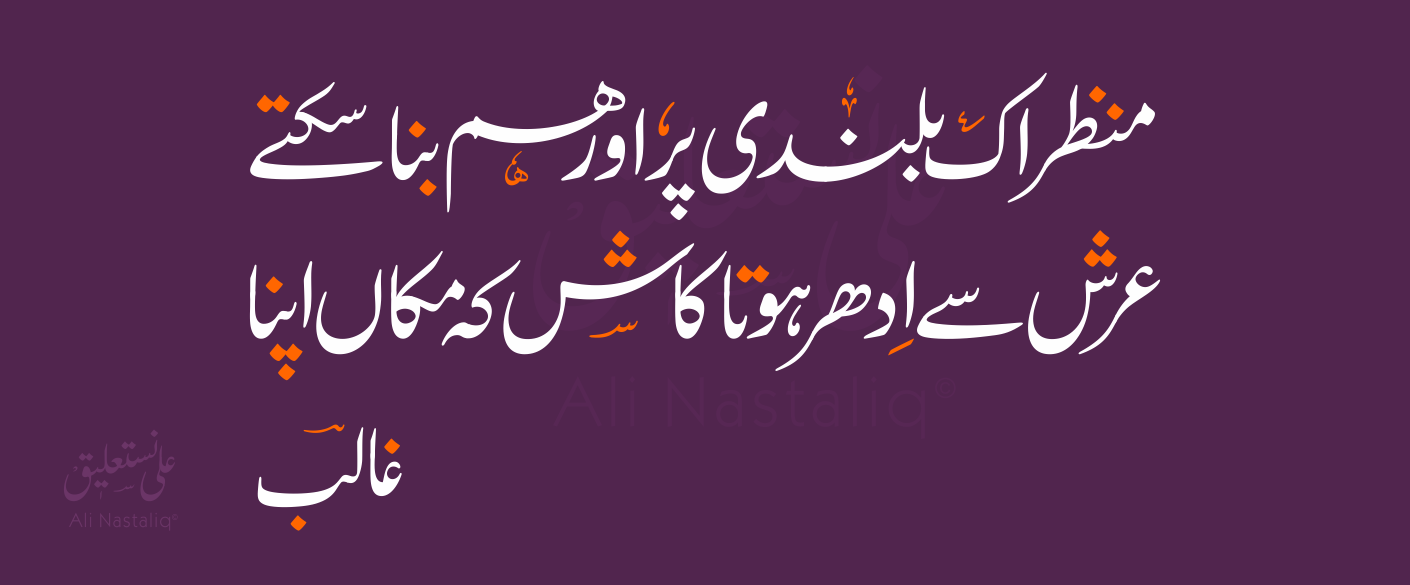No products in the cart.
In the ever-evolving landscape of publishing, certain tools emerge as game-changers, reshaping the way content is presented and consumed. Among these transformative innovations stands Ali Nastaliq, a font that not only pays homage to the rich history of Urdu calligraphy but also propels Urdu printing and publishing into the digital age. In this blog, we delve into the fascinating journey of Ali Na

To understand the significance of Ali Nastaliq, we must first appreciate the historical context from which it emerged. Nastaliq, a cursive script characterized by its elegant flourishes and flowing strokes, traces its origins back to the 14th century Persia. Over time, it became the preferred script for Persian and Urdu calligraphy, revered for its aesthetic beauty and readability.
Urdu, a language born out of cultural synthesis, flourished alongside Nastaliq script. With roots in the medieval Indo-Aryan languages of North India, Urdu evolved into a language of poetry, literature, and communication, enriched by influences from Persian, Arabic, and Turkish.
Despite Urdu's widespread use and cultural significance, the publishing industry faced numerous challenges, particularly in the realm of typography. Unlike Roman and Devnagri scripts, Urdu's ligature-based nature posed unique obstacles for typesetting and printing. As a result, Urdu publishing often lagged behind its counterparts, struggling to achieve the same level of quality and efficiency.
The arrival of Ali Nastaliq heralded a new era for Urdu printing and publishing. Developed by the visionary team at Axis SoftMedia Inc., Ali Nastaliq was designed to address the longstanding needs of the Urdu publishing industry. Its Multiple Shape enabled functionality opened doors to digital optimization, ensuring that Urdu content could reach a wider audience through online platforms.
Moreover, Ali Nastaliq's integration with the Manzar Typesetting Tool for Adobe InDesign brought unprecedented ease and efficiency to Urdu typesetting. Designers and publishers now had access to a comprehensive solution that empowered them to create stunning layouts with the finesse of a seasoned calligrapher.
Ali Nastaliq's arsenal of features empowers users to craft visually captivating Urdu content with unparalleled precision and control. Here are some of its standout functions:
1.Multi-Kasheeda Variants: With multiple variants of Kasheeda tailored for Nastaliq, users can customize the spacing between characters to achieve the perfect balance of readability and aesthetics.
2.Multi-Shapes Control: Ali Nastaliq offers users the ability to explore various shapes of individual letters, allowing for creative experimentation and artistic expression.
3.Nuqta and Aerabs Control: The font provides precise control over Nuqta (dots) and Aerabs (diacritical marks), enabling users to adjust their positioning with meticulous attention to detail.
4. Tracking and Kerning: Like a seasoned calligrapher, Ali Nastaliq allows users to track and kern every word, ensuring optimal spacing and readability throughout the text.
In the hands of designers, publishers, and content creators, Ali Nastaliq emerges as a catalyst for creativity and innovation. Its seamless integration with the Manzar Typesetting Tool empowers users to realize their vision with unprecedented ease, whether they're crafting print materials or digital content.
As we celebrate the transformative power of Ali Nastaliq, we pay homage to the rich legacy of Nastaliq script and Urdu language. With each stroke of the pen and click of the keyboard, we honor centuries of artistic tradition while embracing the limitless possibilities of digital technology.
In conclusion, Ali Nastaliq stands as a testament to the enduring legacy of Urdu calligraphy and the boundless potential of innovation. As we continue to push the boundaries of Urdu publishing, let us embrace the power of Ali Nastaliq to shape the future of content creation and communication in the digital age.